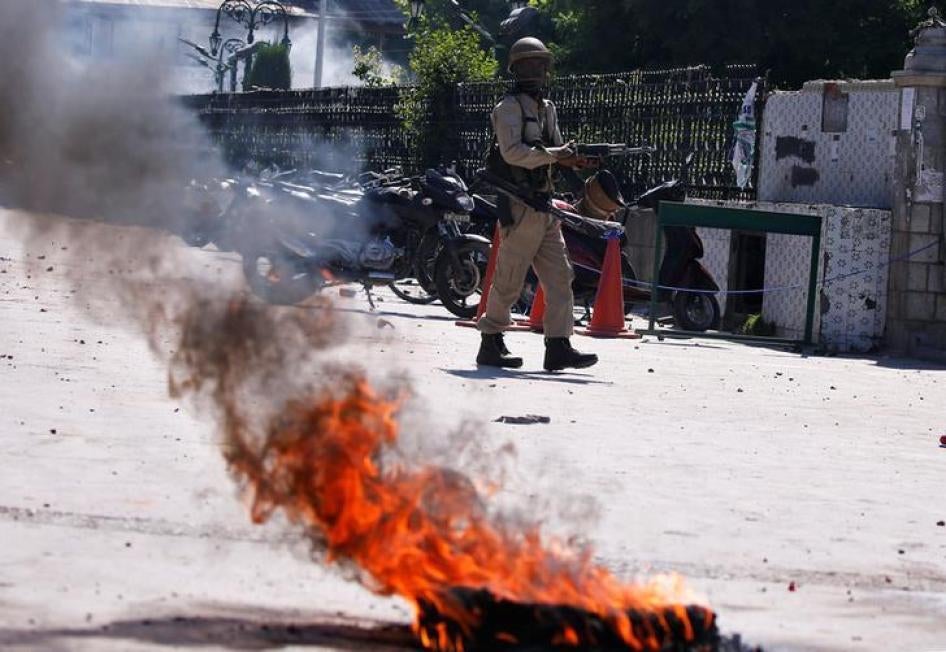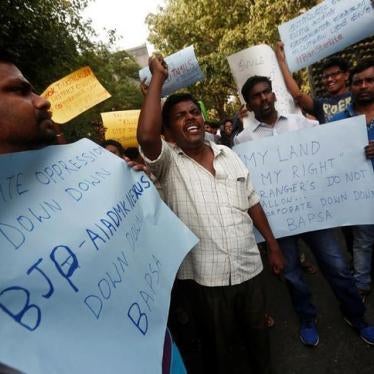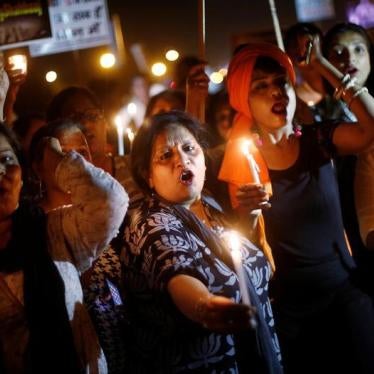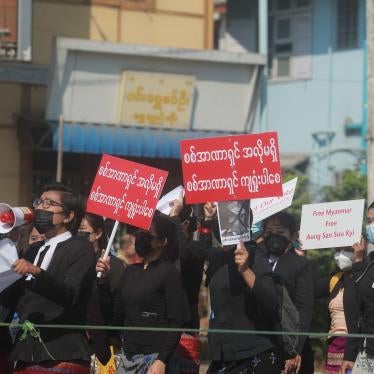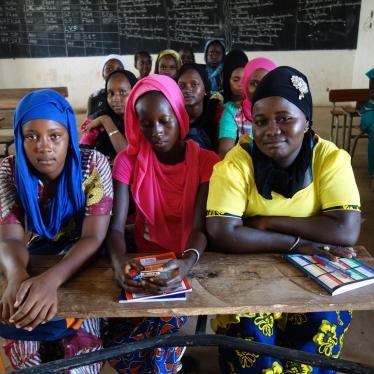When Major Leetul Gogoi was recently detained in Srinagar after a brawl involving civilians, the army chief vowed “exemplary punishment.” “If anyone in the Indian Army, at any rank, does any wrong and it comes to our notice then strict action will be taken against him,” Gen Bipin Rawat said.
But the army chief’s vow will ring false to many because in April 2017, when soldiers under Gogoi’s command, in a patently wrongful act, tied a Kashmiri man to the front of a military vehicle and drove him through the streets as a lesson to stone-throwing protesters, this same officer was publicly commended instead of being investigated and prosecuted.
Such impunity for security forces violations has contributed to anger in Kashmir. In early May 2018, Mohammad Rafi Bhat, a sociology professor in Kashmir, was killed in a military operation shortly after he joined a militant group. On Facebook, he had written a few weeks before he died: “By blocking all peaceful means of expressing dissent, what remains is self-defence against the armed forces.”
Since 2015, gunfights with armed groups, that include many more Kashmiris like Bhat, have been increasing. At the same time, stone throwing by protesters and the security forces’ response has injured thousands. In an effort to contain the use of live ammunition, the security forces were armed with shotgun pellets, which have nonetheless caused serious injuries including permanent damage to the eyes and scores of deaths among protesters and bystanders.
Acknowledging the deteriorating situation, the government has declared a halt to security operations during the Muslim holy month of Ramzan. Prime Minister Narendra Modi visited Kashmir and called for peace. “Every stone or weapon picked up by the youth of this state is only meant to destabilize their own state,” he said. Even as separatist leaders called for a protest strike during his visit, the prime minister offered his response to the violence: “All problems, all differences have only one solution,” he said. “Development, development and development.”
While development has long been offered as a solution to conflict, there is a key difference in the present government’s approach to Kashmir.
In the past, a driving force in policy was the belief that the resolution of the crisis in a Muslim-majority state like Jammu and Kashmir was important to India’s secular identity. To achieve this, and to counter demands for a plebiscite, Indian authorities in the past arrested Kashmiri leaders, rigged elections, but also offered compromises, including a special constitutional status.
The BJP, however, ran its national election campaign on a promise of “universal development” (sab ka vikas), which is code to stop what the party considered was the unfair privileging of minority voter groups in the country, including Muslims and Dalits. In Kashmir, the BJP draws its support from Hindu majority areas, building on concerns around the persecution of Hindus who have been forcibly displaced from the valley. Many BJP supporters go further and claim that not just militants but street protesters are “terrorists” and that most Kashmiri Muslims, as well as activists or others who speak up for their human rights, are anti-India and closet Pakistan supporters. Some demand an end to Jammu & Kashmir’s constitutional status.
Some analysts blame the recent spiral in violence on the BJP’s “muscular” approach, which makes little concession to the protection of human rights. In 2016, students that protested violations were accused of sedition.
India has long failed to ensure accountability for human rights violations by its troops, but the recent crackdown has only furthered public disenchantment and anger against the security forces. In several cases, local residents have physically tried to disrupt counter-insurgency operations. Demonstrations and large public processions routinely mark funerals of slain militants. Meanwhile, more and more Kashmiris are resorting to both guns and stones.
The first step towards addressing the crisis in Kashmir is for the government to confront and ensure justice for human rights violations. This includes following up on the order of the state human rights commission to investigate unmarked graves, which many believe also contain the remains of individuals forcibly disappeared, allegedly by the security forces . Charges of extrajudicial killings and other abuses are yet to be prosecuted because of immunity provided to troops, including under the infamous Armed Forces Special Powers Act.
If soldiers and officers who abuse their authority are properly punished instead of being praised and rewarded, perhaps it will help those contemplating violence to believe in justice instead.

